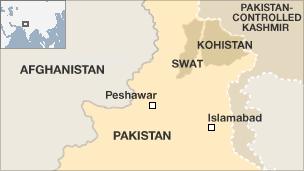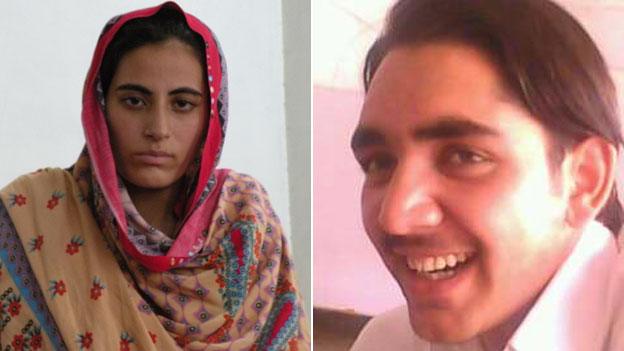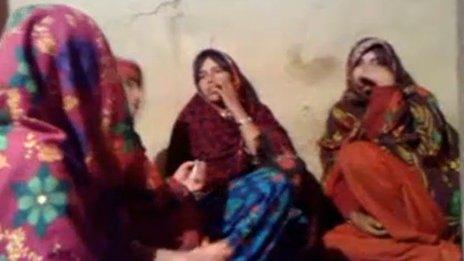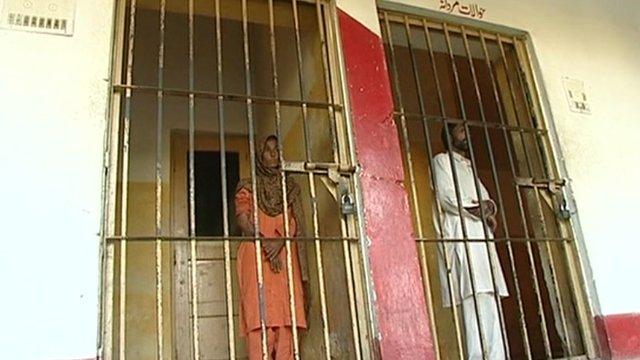Six guilty of Pakistan Kohistan 'honour killings'
- Published
Video showed the women and men singing and dancing at a wedding, as Orla Guerin reported in 2012
A court in the remote northern Pakistan region of Kohistan has sentenced a man to death for the murder of three brothers in a so-called honour killing.
Five others were sentenced to life imprisonment.
The killings took place early last year after a mobile phone video surfaced which showed a group of women and men dancing and chatting at a wedding.
The men killed were brothers of the men in the video, and those convicted were relatives of the women.
The women are also thought to have been killed.
The BBC's M Ilyas Khan in Islamabad says that it is the first time that anyone has been sentenced for an "honour killing" in Kohistan, one of the most conservative parts of Pakistan.
The ancient and rigid honour code of the region gives the family of a woman the right to kill her - and any of her lovers - whether or not any proof of a liaison between them actually exists, our correspondent says.
The mere mixing of men and women of different families can cause an affront to the families of the women, he adds, providing them with what they say is the right to avenge family honour.
Police believe that in this case, relatives of the women in the video decided they had been shamed and sought revenge. But because they could not trace the men in the video, they instead killed their three brothers in January 2013.
Four of the women in the video are believed to have been murdered, as well as a fifth woman who is not seen in the footage.

However their bodies have never been found and the killings were denied by local officials and members of the women's family.
The six men sentenced on Thursday have the right of appeal. There is currently a moratorium on death sentences in Pakistan.
Witnesses at the hearing said that there was heavy security throughout the court premises before the verdicts were announced.
All the accused were in court to hear the judge make a brief statement announcing their guilt. He will give more details, he said, at a later date.
Our correspondent says that in recent years there has been greater scrutiny of such cases across Pakistan, and that they are more frequently reported to police.
Earlier this month the case of Rukhsana Bibi in Kohistan was highlighted by the BBC. She was severely injured and her husband killed because, she says, they decided to elope and get married against the wishes of her family.
- Published7 January 2014

- Published6 June 2012

- Published27 June 2013

- Published5 November 2012

- Published28 November 2011
